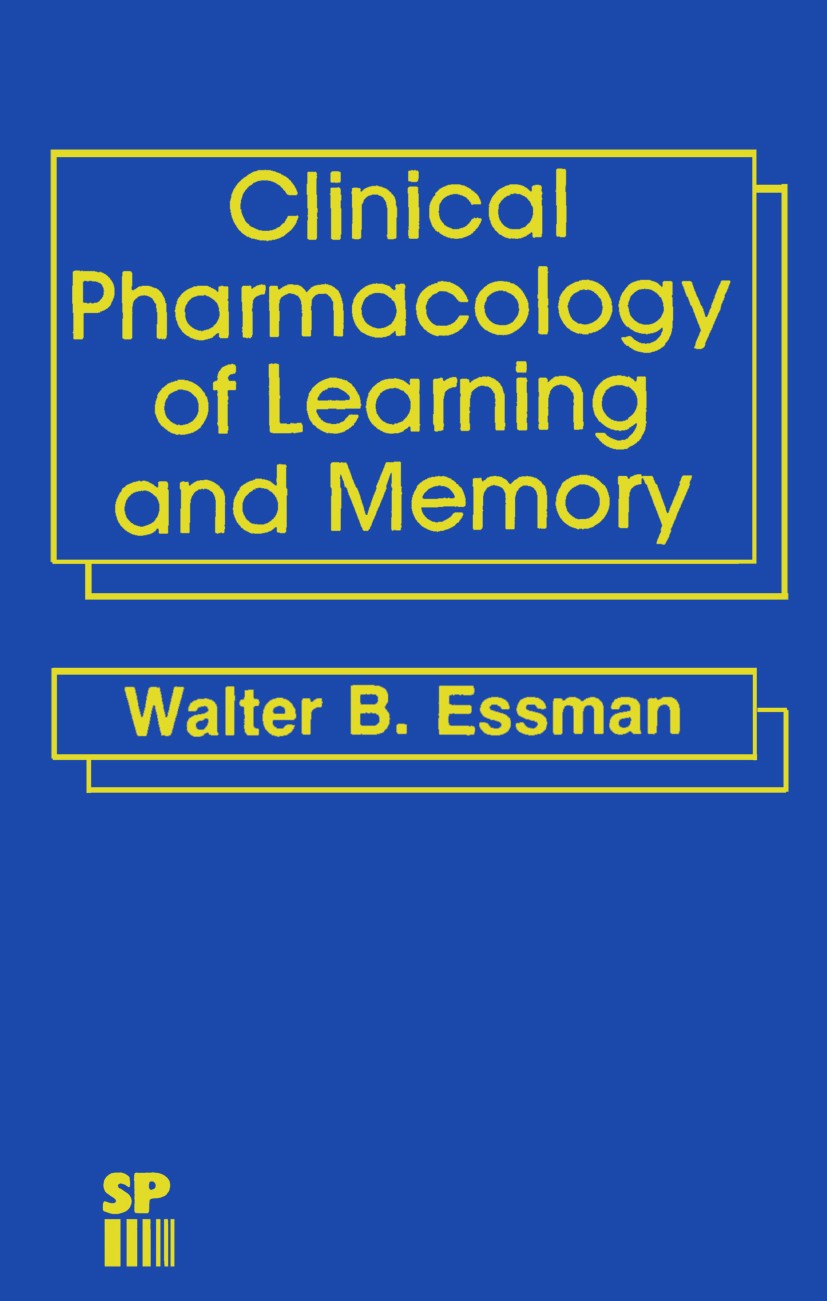| 书目名称 | Clinical Pharmacology of Learning and Memory | | 编辑 | Walter B. Essman | | 视频video | http://file.papertrans.cn/229/228172/228172.mp4 | | 图书封面 |  | | 描述 | The search for drugs to alter learning and memory processes in animals and man has its roots in mythology as well as the history of medicine. The use of plant alkaloids to improve memory was a recommendation of Benjamin Rush in his "Diseases of the Mind" (1812, P. 284), and the mysterious contents of lethe, a liquid capable of causing the erasure of earthly memories is found in Egyptian and Greek mythology, as well as described by Dante, remains a still-sought amnesic molecule. The facilitation of learning or improvement of memory has been claimed for several plant-derived substances including coca, chat, caffeine, and nicotine. Hypotheses concerning substances found in the brain and their presumed significance for learning or memory led to the development and use of agents that contained such substances. For example, as observed by William James (1892, P. 132), the emphasis, in Germany during the 1860‘s, upon phosphorus in the brain for cognitive functions gave rise to the suggestion that foods vii viii CLINICAL PHARMACOLOGY OF LEARNING AND MEMORY high in phosphorus content, such as fish, were good for brain function. Phosphorus-containing preparations were advocated for use in ca | | 出版日期 | Book 1983 | | 关键词 | pharmacology | | 版次 | 1 | | doi | https://doi.org/10.1007/978-94-011-9658-1 | | isbn_softcover | 978-94-011-9660-4 | | isbn_ebook | 978-94-011-9658-1 | | copyright | Spectrum Publications, Inc. 1983 |
The information of publication is updating

|
|
 |Archiver|手机版|小黑屋|
派博传思国际
( 京公网安备110108008328)
GMT+8, 2026-1-19 01:01
|Archiver|手机版|小黑屋|
派博传思国际
( 京公网安备110108008328)
GMT+8, 2026-1-19 01:01


